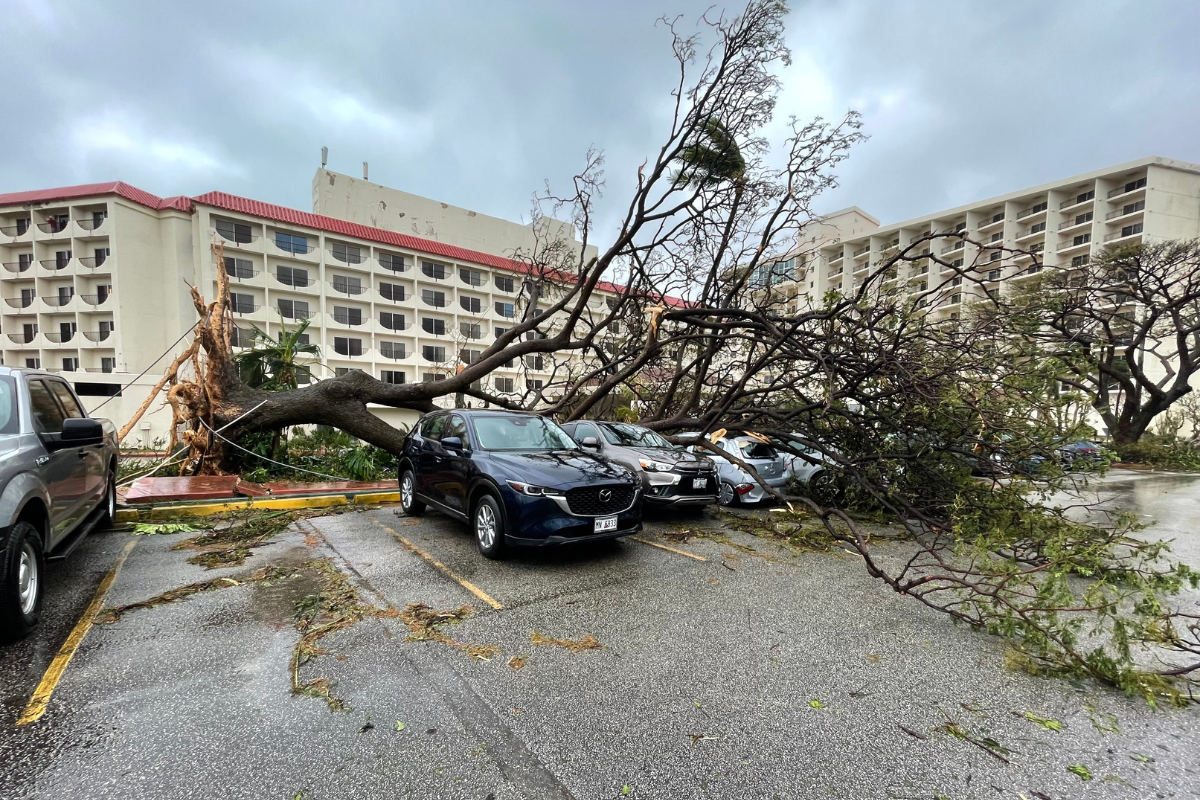
A representative from URT estimates that his company will receive roughly half a million pounds of e-scrap at its facility in Clackamas, Ore. | Eric Celebrezze/Shutterstock
Forget the next city or state over – Universal Recycling Technologies’ Oregon facility will recycle e-scrap that traveled the equivalent of one-third of the circumference of the earth.
Federal officials are coordinating cleanups on the island territory of Guam after it was lashed in May by Typhoon Mawar, which brought sustained 140 mph winds and pounding rains. That cleanup process includes recovering damaged electronics from dozens of schools.
A federal contractor visited all 41 public schools on Guam to collect damaged electronics, solar panels and household hazardous waste, according to an EPA press release. The material was combined with scrap and waste collected elsewhere on the island and loaded into shipping containers.
Julia Giarmoleo, an EPA press officer assigned to the typhoon response, told E-Scrap News the e-scrap will be taken to the Universal Recycling Technologies (URT) recycling facility in Clackamas, Ore., near Portland.
Bryan Catello, a regional sales manager at URT, said in an interview that San Jose, Calif.-based hazardous waste firm ACTenviro holds a Federal Emergency Management Agency contract for the cleanup. The company, which has done business with URT for some time, contacted URT about recycling the e-scrap.
Catello estimated URT would receive over two dozen containers of e-scrap material, including two filled with solar panels. Each of the containers holding electronics will weigh roughly 20,000 pounds, so the total could be roughly half a million pounds.
Five containers are already on the water, Catello said. They’ll first travel to South Korea before they’re moved to a different ship bound for Los Angeles. Once there, the e-scrap, which includes computers, monitors, bulbs and solar panels, will be loaded on trucks and driven up to Clackamas.
That route has them traveling the equivalent of over one-third of the circumference of the earth. In his eight years with URT, Catello said, he’s never seen recycling feedstock travel further to arrive at URT.



